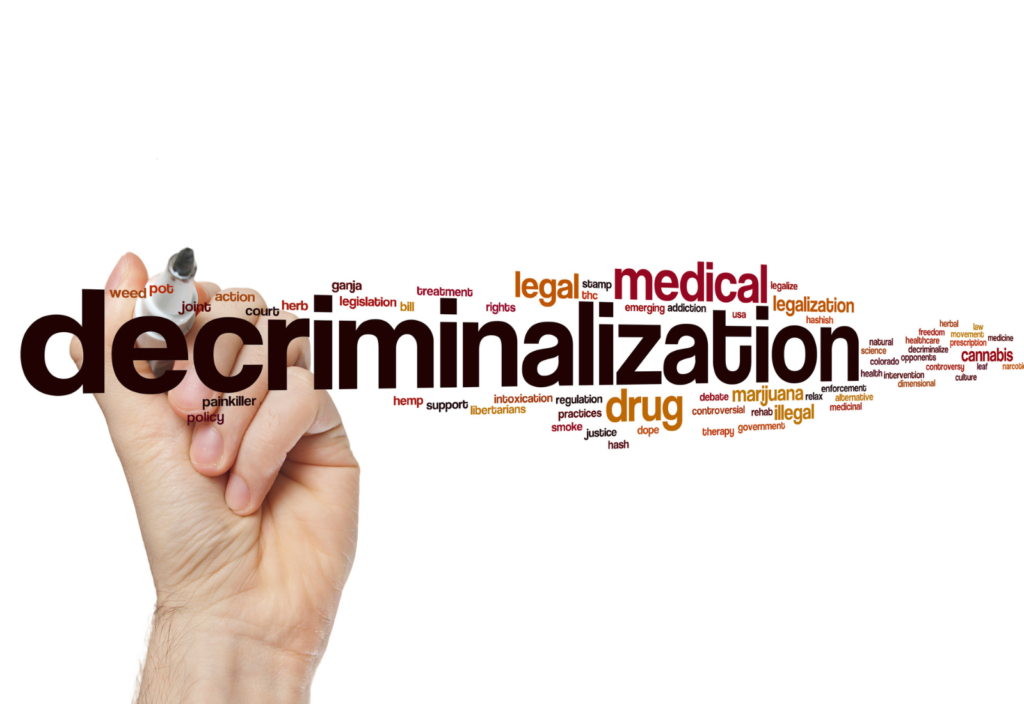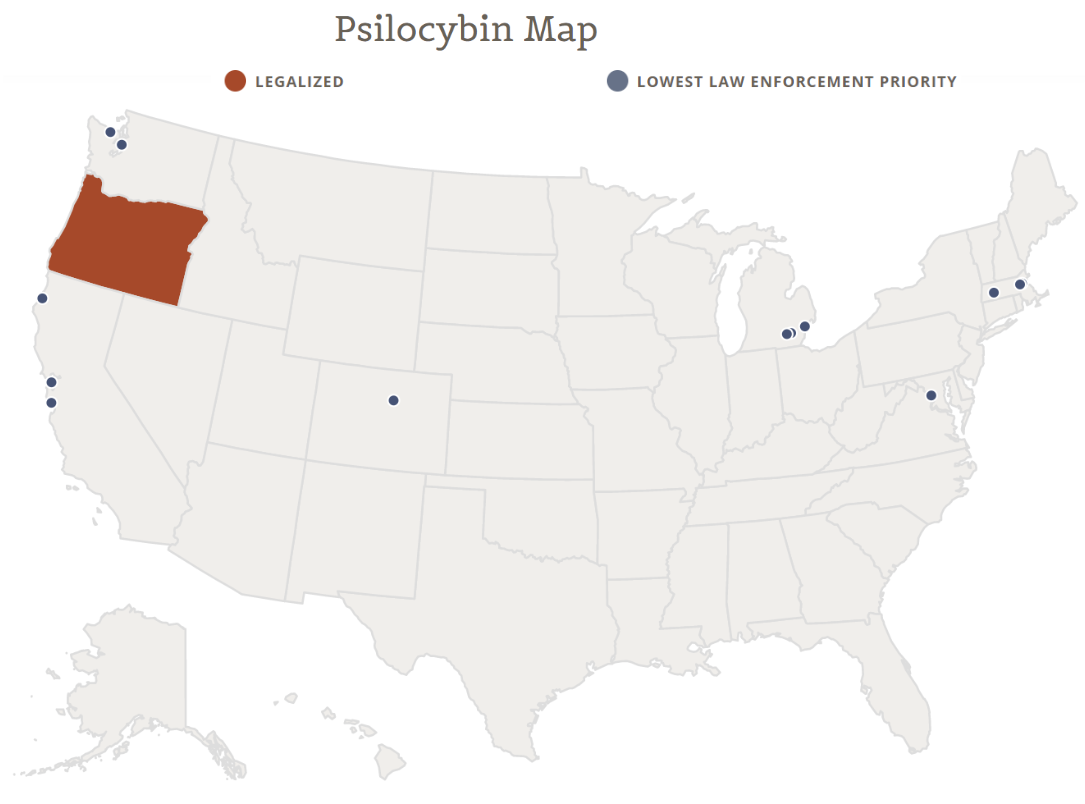Since Denver became the first U.S. jurisdiction to decriminalize psilocybin in 2019, a number of cities across the country – including, most notably, Oakland and Santa Cruz in California – have decriminalized psychedelics in various forms. And as readers of the Psychedelics Law Blog are surely aware, Oregon and now Colorado passed full-scale regulatory regimes. California may soon join the ranks of many other local and even state jurisdictions that have tried to decriminalize psychedelics.
View the US Map of Psilocybin Legality by State
Following numerous local decriminalization bills across the nation, California State Senator Scott Wiener tried to pass a statewide decriminalization bill (SB-519, which I wrote about often) in 2021 and again this year, to no avail. Now Senator Wiener is back with a new, slimmer psychedelics decriminalization bill – SB-58.
SB-58 was first published on December 16, 2022, with an array of co-sponsor state senators. On December 19, 2022, Senator Wiener tweeted his announcement of SB-58, noting:
Today we’re announcing new legislation (Senate Bill 58) to decriminalize possession & use of plant-based psychedelics in California.
Psychedelics have huge promise for mental health & addiction treatment.
SB 58 is backed by a coalition of veterans & others committed to reform.
Indeed, according to KTLA:
SB 58 is sponsored by Heroic Hearts Project, a veteran service organization.
“Psychedelics helped healed the unseen scars from my 10 years of service in the War on Terror,” said California veteran and Heroic Hearts advocate Michael H. Young. “This sacred plant medicine showed me how to put myself back together again. I am more whole now. I can love again. I am ready to serve my community again.”
SB 58 was co-authored by Assembly members Buffy Wicks (D-Oakland), Evan Low (D-Silicon Valley), Matt Haney (D-San Francisco), Alex Lee (D-Fremont), Isaac Bryan (D-Los Angeles), Lola Smallwood-Cuevas (D-Los Angeles). Assemblymember Ash Kalra (D-San Jose) is a principal co-author.
A few things are worth pointing out for now:
- SB-58 is a lot less broad than SB-519, which would have decriminalized not only plant-based psychedelics, but also a host of synthetic substances. SB-58 only covers psilocybin, psilocyn, mescaline (but not peyote), ibogaine, and DMT.
- State drug paraphernalia laws would be amended to not include certain paraphernalia used with the decriminalized psychedelics.
- Simple possession of small amounts of mescaline (4 grams per person) would be decriminalized for persons over 21. So too would assisting persons with possessing or consuming mescaline, as well as cultivating, harvesting, or preparing plans (not peyote though) used to produce mescaline. Facilitated or supported use would also be decriminalized. Persons between 18-21 would just be subject to an infraction for these acts. And transfers between persons over 21 without financial gain (which itself wouldn’t include counseling, spiritual guidance, or related fees) would be decriminalized.
- Similar provisions would be implemented for psilocybin (up to 2 grams or 4 ounces of a fungi), psilocyn (up to 2 grams or 4 ounces of a fungi), ibogaine (up to 15 grams), and DMT (up to 2 grams), and so too would harvesting those plants.
Over the coming weeks, we’ll do a full debrief of what SB-58 would do, though it’s pretty obvious that the psychedelics decriminalization bill will be subject to heavy amendments as it winds through the state legislature. Stay tuned to the Psychedelics Law Blog for more updates!



























